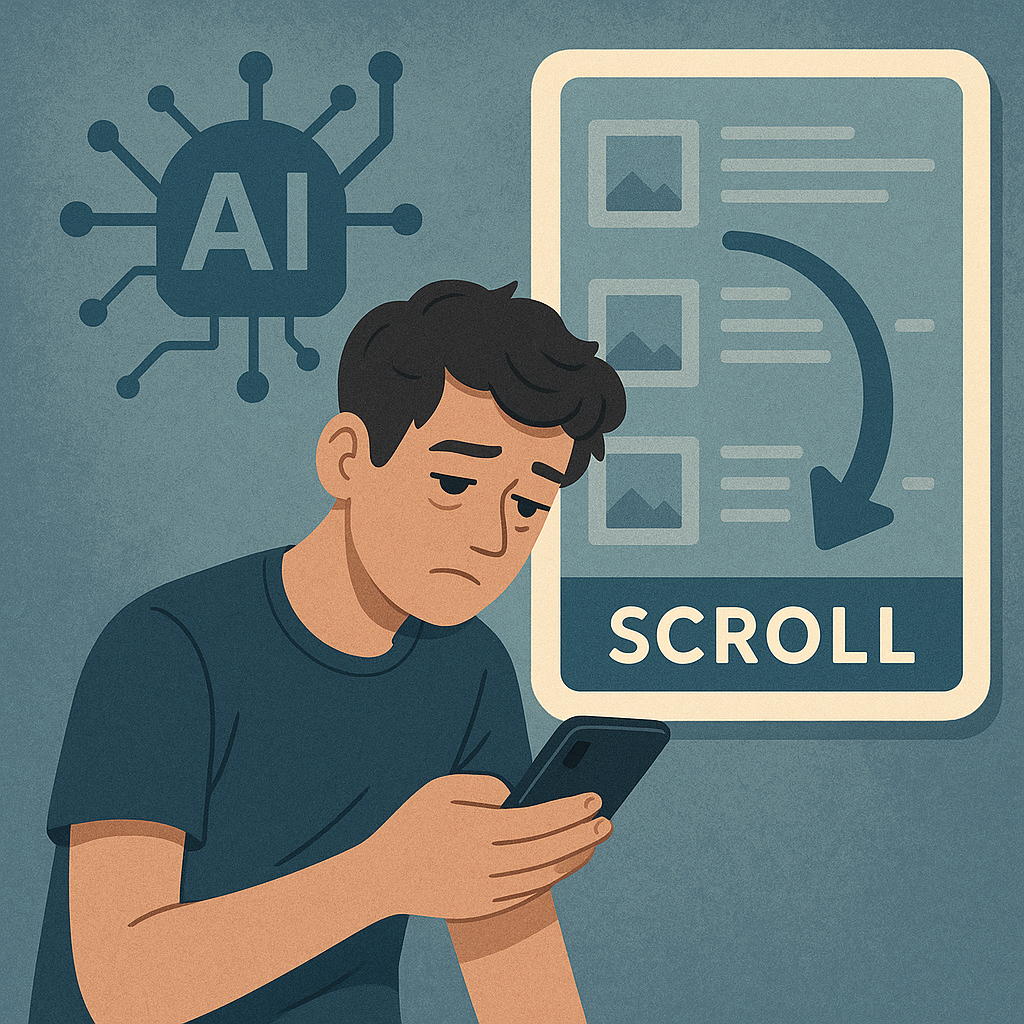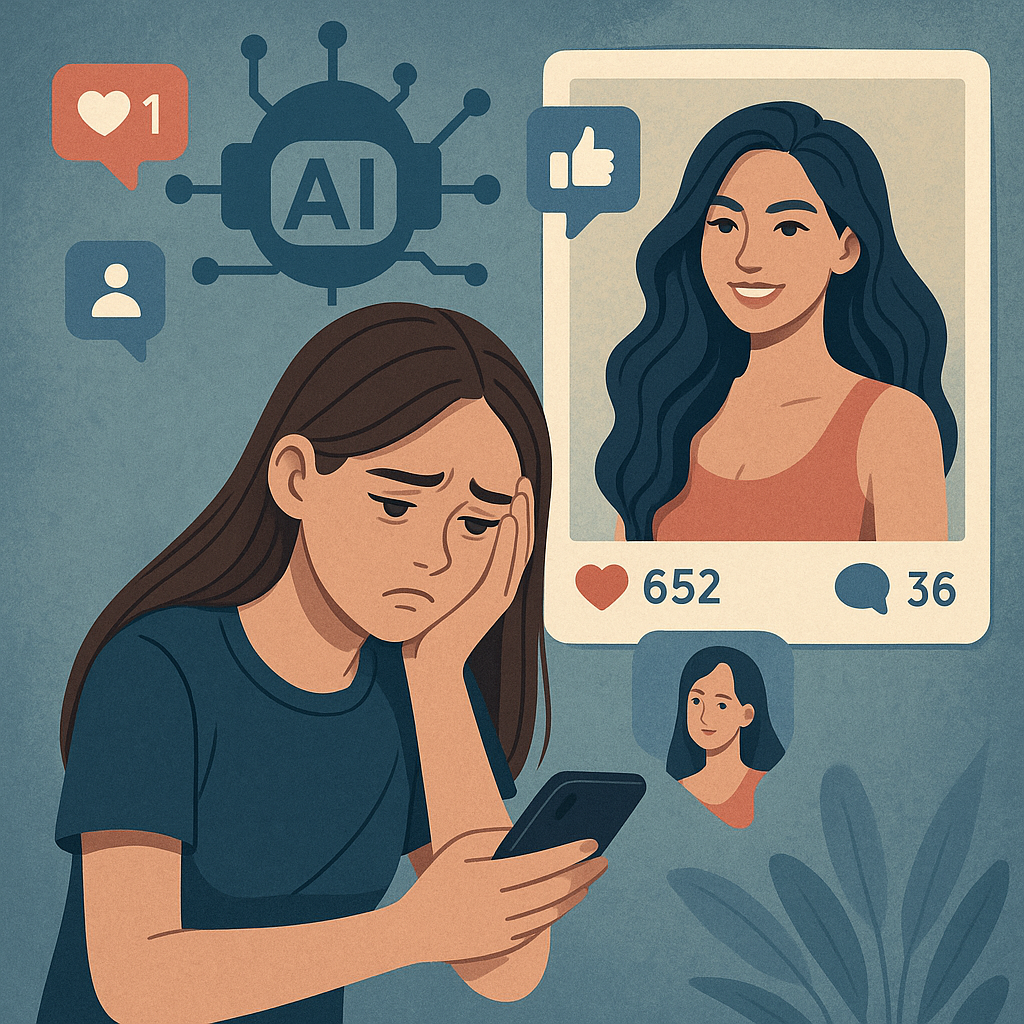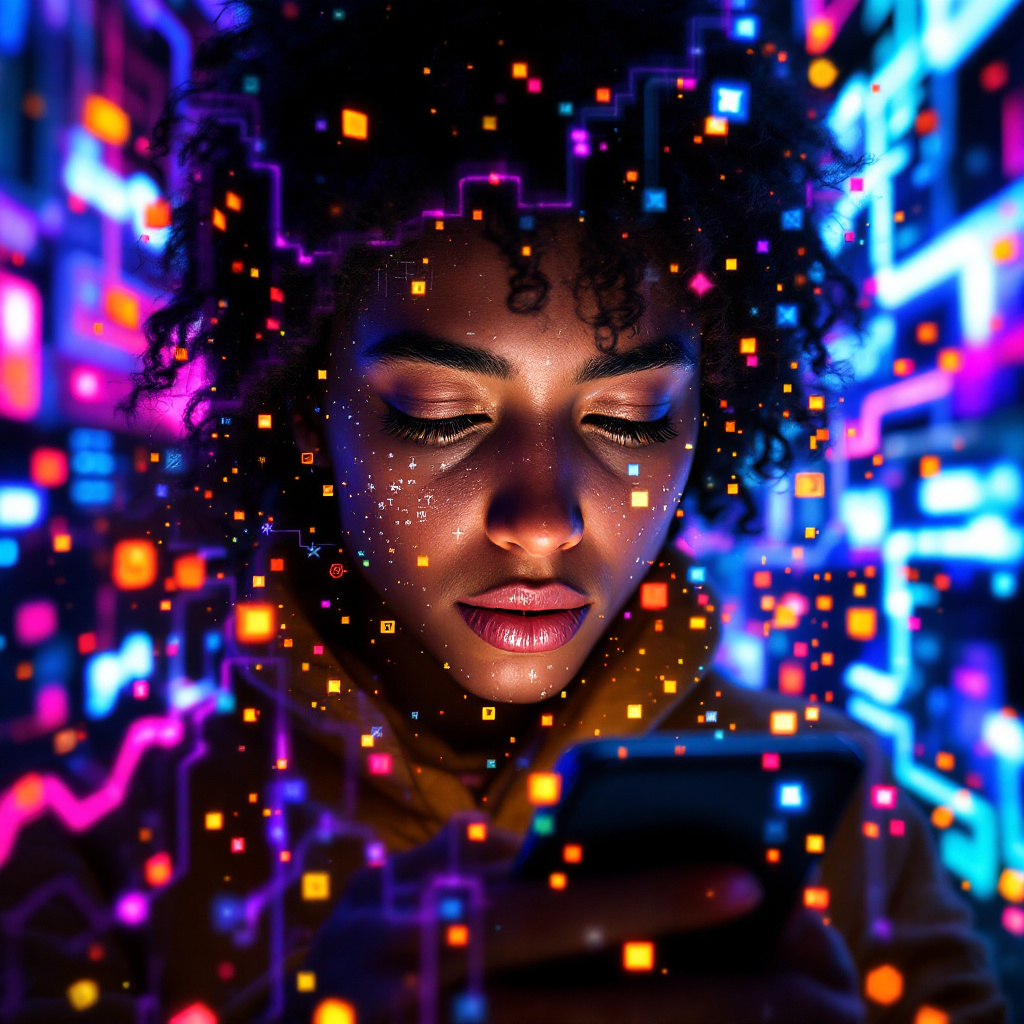Introduction
Have you ever found yourself scrolling through your social media feed, losing track of time and wondering how you got there in the first place? If you’ve experienced this, you’re not alone. This phenomenon is more than just an annoying habit—it’s a product of the technology we use every day, specifically artificial intelligence (AI). While AI has the potential to revolutionise our lives in positive ways, its addictive properties raise serious ethical concerns that we must address.
AI is now woven into almost every aspect of modern life, from personalised shopping recommendations to the music playlists we listen to. According to a 2022 report by McKinsey, nearly 50% of organisations worldwide are using AI for decision-making, automation, and customer engagement. However, as AI continues to shape our digital landscape, we must ask: Is this technology becoming too powerful? Are we, as individuals and society, becoming addicted to AI?
The Addictive Nature of AI
One of the most concerning aspects of AI is its ability to manipulate human behaviour. Through sophisticated recommendation algorithms, platforms like Facebook, Instagram, and YouTube are designed to keep users engaged for as long as possible. These algorithms track user behaviour, analyse it, and serve up content that is predicted to keep you hooked. The longer you interact with the platform, the more personalised the content becomes, reinforcing your engagement in a self-perpetuating cycle.

Take Instagram, for example. A study by Common Sense Media found that 45% of teenagers feel “addicted” to social media. The infinite scroll feature, combined with the instant gratification of likes, comments, and shares, creates a feedback loop that can be incredibly hard to break. It’s not just social media platforms either—AI in gaming, online shopping, and streaming services like Netflix are all designed to keep you coming back for more.
This endless engagement with digital content often comes at the cost of time, attention, and, more worryingly, mental health.
The Ethical Implications of AI Addiction
While AI addiction may seem like a byproduct of technological advancement, it presents serious ethical dilemmas. These issues extend far beyond just the individual user experience and impact society as a whole.
1. Loss of Autonomy and Free Will
AI algorithms shape our choices in ways we might not even realise. The more we engage with these platforms, the more our behaviour is influenced by algorithms rather than our own desires. This raises the question: Are we truly in control of our digital lives, or are we simply following the path laid out for us by powerful tech companies?
In a world where every click, like, and scroll is tracked and analysed, our autonomy is at risk. This is especially concerning when you consider how addictive algorithms are designed to exploit psychological triggers such as the craving for novelty, social validation, and instant gratification. As a result, individuals may find themselves passively consuming content, with their attention and decisions shaped by forces beyond their control.
2. Data Privacy and Exploitation
AI addiction is powered by vast amounts of personal data. Every time you engage with a platform, the system gathers data about you—your preferences, your habits, and even your emotions. This data is used to refine algorithms, making them even more effective at keeping you engaged. But there is an ethical issue here: Many people are unaware of just how much data is being collected, and often, this data is used to generate profit for the companies behind the platforms.
This practice, known as surveillance capitalism, raises concerns about privacy and exploitation. Tech companies profit from your attention and personal data, often without your explicit consent or knowledge. The more data they have, the better they can manipulate your behaviour, which only deepens the addiction.
3. Mental Health Consequences
The addictive nature of AI-powered platforms has been linked to a range of mental health issues. For example, research has shown that the instant gratification provided by likes and notifications can trigger the release of dopamine—the brain’s “feel-good” chemical. This chemical reaction reinforces the behaviour, encouraging users to keep coming back for more.

However, the long-term impact can be detrimental. Excessive screen time has been associated with increased levels of anxiety, depression, and sleep disturbances. A study by the Royal Society for Public Health found that social media platforms like Instagram exacerbate feelings of inadequacy and foster unrealistic beauty standards. This can leave users feeling isolated and disconnected, ultimately harming their mental wellbeing.
A study by Dove and the Centre for Appearance Research revealed that social media is having a serious impact on young girls’ mental health. Over half of the girls surveyed said it makes them feel worse about their appearance. Many felt pressured to meet unrealistic beauty standards, often influenced by heavily edited or AI-generated images. This constant exposure can lead to low self-esteem, anxiety, and body image issues, highlighting the urgent need for more responsible digital content and ethical AI use online.
Responsible AI Design
While AI addiction presents significant ethical challenges, it’s important to remember that AI is not inherently bad. In fact, it has the potential to improve our lives in numerous ways, from personalised healthcare solutions to smarter cities and more efficient businesses. However, it’s essential that we approach AI design responsibly and ethically, ensuring it serves humanity rather than exploiting it.
1. Stronger Regulation and Oversight
Governments and regulators need to step in to ensure that AI is used ethically. This includes setting clear guidelines on how user data is collected and used, as well as enforcing transparency in AI systems. Companies should be required to disclose how their algorithms work and allow users to control the data that is being collected about them.
2. Designing for Wellbeing
Tech companies must take a more ethical approach to product design. Instead of prioritising user engagement at all costs, they should create platforms that encourage healthier, more balanced digital behaviours. This could include features like screen time limits, digital wellbeing tools, and content moderation that promotes mental health.
3. Educating Users
Equally important is the need for user education. People must become more aware of the addictive properties of AI and take steps to manage their screen time and digital habits. Awareness campaigns, as well as tools that help users track their screen time and set limits, can empower individuals to take control of their digital lives.
Conclusion
AI is undoubtedly a powerful tool, but it comes with significant ethical implications. The potential for addiction, exploitation of personal data, and negative mental health outcomes are just some of the challenges we must address. However, AI is not the enemy—how we choose to use it is what matters.
As individuals, we must take responsibility for our own digital consumption and become more mindful of the impact AI can have on our lives. At the same time, companies must be held accountable for designing ethical, responsible AI systems that prioritise user wellbeing. Governments, too, have a role to play in ensuring that AI is developed and deployed in ways that benefit society as a whole.
By working together—through better regulation, responsible design, and increased awareness—we can harness the power of AI without falling prey to its addictive nature. In doing so, we can create a future where AI enhances our lives, rather than controlling them.








